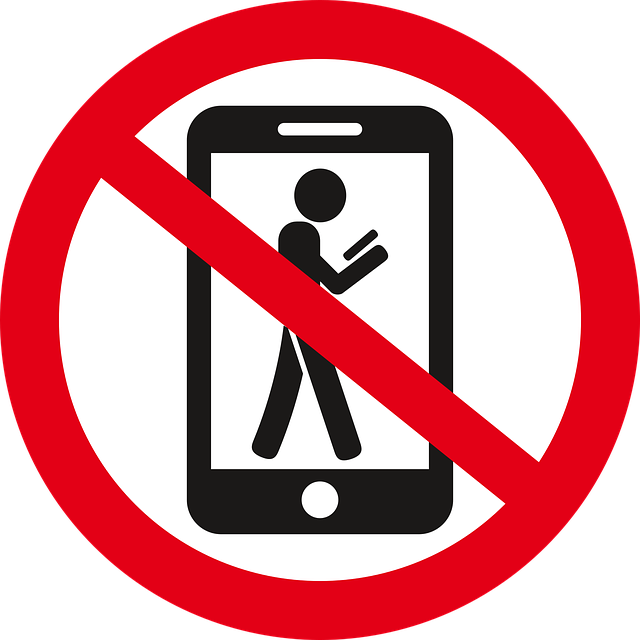Robocalls have become a pervasive issue in South Dakota, leading to growing privacy concerns. Unwanted call lawyers and specialized law firms cater to this problem, helping residents understand their rights under local and international telemarketing regulations. South Dakota's position as a telecommunications hub positions it to play a crucial role in cross-border robocall regulation. Strict consumer protection laws and the expertise of unwanted call attorneys SD empower residents to take legal action against violators, while international agreements like GDPR strengthen global anti-robocall measures.
“In today’s digital age, unwanted robocalls have become a pervasive nuisance for South Dakota residents. With the rise of global communication, these automated calls often transcend borders, leaving citizens frustrated and seeking protection. This article explores the intricate web of international treaties affecting robocall enforcement in Spearfish and across South Dakota. We delve into global efforts to combat spam calls, the role of local authorities, and how victims can navigate legal options with the help of specialized unwanted call lawyers in SD and unwanted call attorneys South Dakota.”
Understanding Robocalls and Their Impact on South Dakota Residents
Robocalls, or automated telephone calls, have become a prevalent and often unwanted nuisance for South Dakota residents. These pre-recorded messages, typically promoting products, services, or political campaigns, are designed to reach a wide audience quickly and efficiently. However, their prevalence has led to significant concerns among citizens, who frequently find themselves on the receiving end of these mass marketing attempts. In many cases, these calls can be considered illegal, especially when they violate South Dakota’s regulations regarding telemarketing practices and consumer privacy.
South Dakota residents often face challenges in dealing with unwanted calls, which can range from political robocalls to sales pitches from various companies. This has sparked a need for legal representation, leading many to seek the expertise of unwanted call lawyers or unwanted call attorneys in South Dakota. Specialized law firms catering to these issues have emerged, offering their services to help residents navigate the complexities of robocall enforcement and protect their rights under relevant international treaties and local laws.
International Treaties: A Global Perspective on Spam Call Enforcement
International Treaties play a pivotal role in shaping global efforts to combat unwanted calls, or robocalls, and enhance consumer protection. These agreements serve as a framework for countries to collaborate and establish uniform standards against spam calls, ensuring a more unified front in this digital age challenge. South Dakota residents often seek legal counsel from unwanted call lawyers or unwanted call attorneys in SD when dealing with persistent robocalls, highlighting the importance of effective enforcement mechanisms.
Various international treaties focus on data privacy and communication regulations, directly impacting how countries tackle unwanted telemarketing calls. By adhering to these global standards, South Dakota, like many other states, can strengthen its unwanted call law firm capabilities, providing residents with better protection against nuisance calls. This collaborative approach ensures that legal remedies and strategies are aligned across borders, making it easier for unwanted call lawyers in SD to address a growing concern in the digital landscape.
The Role of South Dakota in Cross-Border Robocall Regulation
South Dakota plays a significant role in cross-border robocall regulation due to its position as a hub for telecommunications. As one of the leading states in hosting call centers, SD has implemented stringent consumer protection laws aimed at curbing unwanted calls. With a robust legal framework in place, including the Unfair or Deceptive Acts and Practices (UDAP) law, the state offers a strategic advantage for those seeking to hold international robocallers accountable. Many unwanted call lawyers South Dakota specialize in representing clients affected by automated telemarketing calls, providing expertise in navigating complex legal territories.
The state’s courts have been instrumental in interpreting and enforcing these laws, making it an attractive jurisdiction for cases involving cross-border robocalls. Unwanted call attorneys SD often collaborate with international partners to ensure compliance with global regulations and pursue legal action against non-compliant robocallers. With the increasing globalization of telemarketing practices, South Dakota’s role in regulating unwanted calls is more critical than ever, offering a beacon of hope for consumers worldwide facing persistent automated calls.
Legal Options for Victims: Unwanted Call Lawyers in SD Step In
In the face of relentless robocalls, victims in Spearfish, South Dakota, now have a legal option to fight back. Unwanted call lawyers specializing in telemarketing laws are standing by to assist residents who are being harassed by automated phone calls. These attorneys are well-versed in navigating complex international treaties and domestic legislation that govern telemarketing practices, ensuring that companies adhere to strict guidelines regarding the use of robocalls.
With the rise of global communication, international treaties play a significant role in regulating cross-border telemarketing activities. South Dakota residents can turn to unwanted call lawyers and law firms that have expertise in these treaties, which often include provisions for consumer protection and privacy rights. By engaging the services of a qualified unwanted call attorney in South Dakota, victims can take action against violators and seek damages or injunctive relief to stop the nuisance calls once and for all.
How International Agreements Can Enhance Protection Against Robocalls
International agreements play a pivotal role in enhancing protection against robocalls and unwanted calls in South Dakota. These global pacts establish norms and standards for cross-border communication, ensuring that countries work together to combat nuisance calls. One notable example is the General Data Protection Regulation (GDPR) in Europe, which has influenced similar privacy regulations worldwide, including those targeting automated or unwanted marketing calls. By harmonizing data protection laws, these agreements make it easier for consumers to seek redress and for legal professionals specializing in unwanted call lawyer South Dakota to navigate complex cases involving international entities.
Moreover, international treaties facilitate the exchange of information and best practices among nations struggling with robocall enforcement. Through collaborative efforts, countries can develop more robust strategies to identify and penalize offenders effectively. This cooperation ensures that consumers across borders enjoy equal protection against invasive and fraudulent unwanted call attorneys SD. As technology continues to evolve, these global alliances remain essential in staying ahead of emerging threats from automated calls, safeguarding the privacy rights of citizens worldwide, including those in Spearfish, South Dakota.






